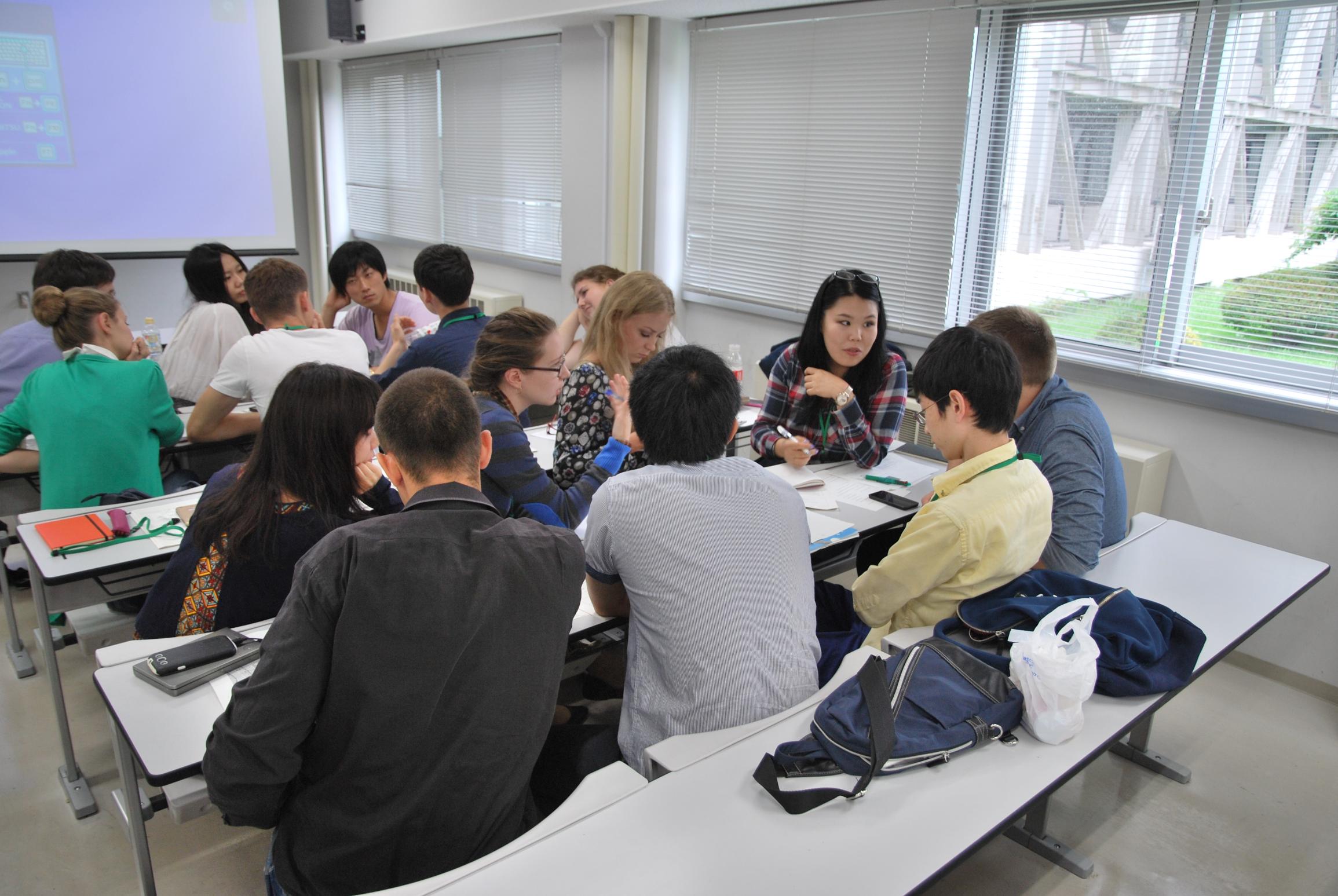Under the joint Russian-Japanese program RJE3 Hokkaido University (Sapporo, Japan) hosts Basic Subjects Course for students from partner Universities.
The Basic Subjects Course include master-classes and presentations made by leading specialists in such fields as archaeology, history, political science, economics, environment and architecture studies. Among the lecturers there are ISU specialists. On August 25th Dmitry Lokhov, the researcher of history department, presented a report on the topic “Ceramics Complexes of the South of Middle Siberia in the Late Stone Age” devoted to the typology of neolithic ceramics found on the territory of Baikal Siberia.
On August 28th the head of world history and international relations department, professor Sergey Kuznetsov delivered a lecture “The Problem of Prisoners of War in Russian-Japanese Relations after World War II”. In his lecture Prof. Kuznetsov told about the role of POW sent to Siberia and Far East in recovering post-war economy of the USSR as well as POW's influence on Russian-Japanese relations.
Five master-program students and post-graduate students of ISU History and Biology and soil studies departments take part in this program. After the Basic Subjects Course ends, the students will be awarded with certificates. But to be presented the certificate, the students have to get a number of credits for preparing analytical papers, participation in discussions and attending classes. Three ISU students are going to stay in Sapporo to have a 6-month-training. It should be noted that other Russian Universities participating in RJE3 program can sent only two students for a term study at Hokkaido University.
Besides lectures and workshops, Hokkaido University offers Russian lecturers and students a cltural program: the tea ceremony, origami master-class and visit to the History Museum of Hokkaido prefecture.
Irina Cherkasova, ISU master-program student comments on:
– The second week of educational program is coming to an end. We attend lectures in ecology, cultural studies, architecture studies and history. After the Basic Subjects Course ends, I plan to have a 6-month-training at Hokkaido University. I'm looking forward to the beginning of a new term, however, I am worried about it a bit. It is so unusual for us to live in a foreign country, specially in such a country as Japan. Nevertheless, this program gives us a good chance to work at one of the best University libraries in Japan – the library of Hokkaido University, attend lectures delivered by famous scientists, communicate with foreign students and master both Japanese and English language skills. I do hope that this training can contribute to my research and I'll be able to make new friends and get new positive emotions.
Reference
East Russia–Japan Expert Education Program RJE3 is conducted under “Strengthening the Universities' International Potential” Project supported by the Ministry of education, science, culture and sport of Japan. Irkutsk Sate University has taken part in this program along with Far Eastern Federal University (Vladivostok), North-Eastern Federal University (Yakutsk), Sakhalin State University (Yuzhno-Sakhalinsk) and Pacific State University (Khabarovsk) since October 2014. The program is targeted at creating the system of international cooperation to train specialists capable of being leaders in such spheres as education, culture, ecology and sustainable development of Far East regions.
















